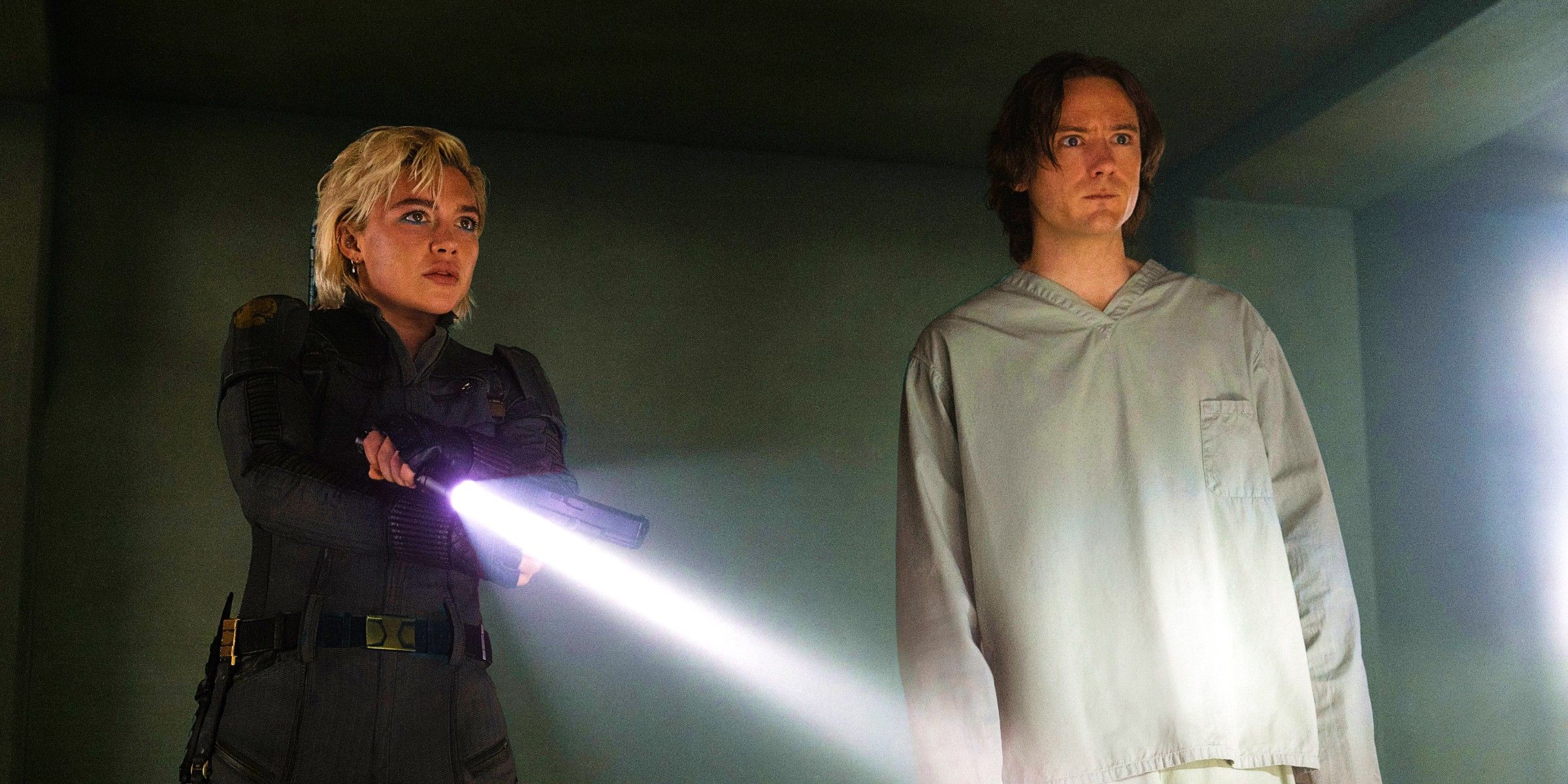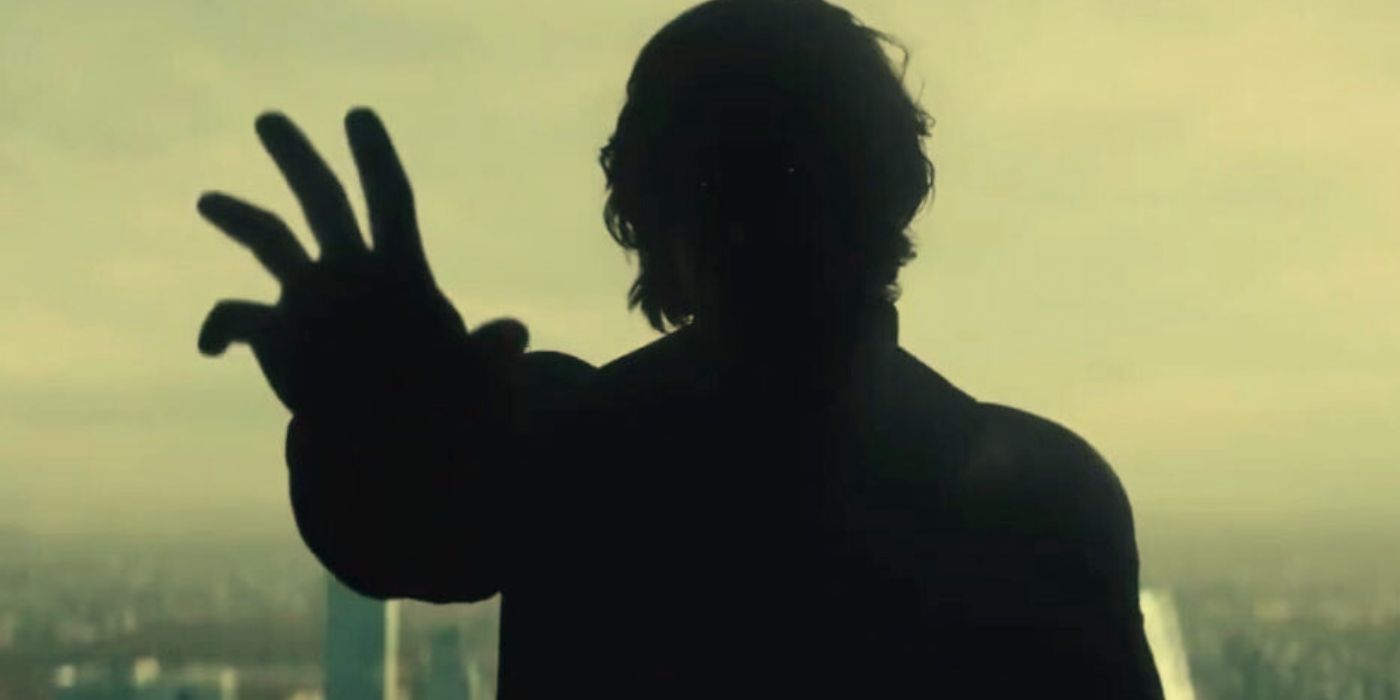:max_bytes(150000):strip_icc()/thunderbolts-Hannah-John-Kamen-Olga-Kurylenko-Wyatt-Russell-sebastian-stan-david-harbour-043025-7ac873e519f54c19a1142b6a39cf8c44.jpg)
With Marvel Studios’s output all over the place in the Multiverse Saga, there’s been a general consensus that the studio has lost its edge. Thus, every time a decent film has come out in the last few years, critics have rushed to declare it the best MCU movie since Endgame. This has been a common refrain with the critical reception to Thunderbolts* as well. It’s a somewhat unfair narrative, given that there have been strong entries in the form of Deadpool & Wolverine, Black Panther: Wakanda Forever, and Guardians of the Galaxy Vol. 3, among others.
The default reaction has led to an overhyping of Thunderbolts*, which is more of a mid-tier effort than a good or great one. In the vein of Suicide Squad or Guardians of the Galaxy, the film features a group of misfits and has-beens uniting against a stronger evil. The similarities to the plot of Suicide Squad are almost disconcerting, given how terrible that movie was.
The film bears the frustrating hallmark of many MCU projects, clearly drawing from a well of storytelling in an interconnected universe but not willing or able to belong as much to that universe as it could. Granted, the team of heroes in this film are leftovers from other MCU projects, which makes it one of the more interconnected projects in a sense. Characters you likely forgot such as Ghost or Taskmaster feature in this film, which could have provided fertile ground for director Jake Schreier to take control of these tossed-off characters and redefine them.
Unfortunately, the film fails to do this due to awkward pacing and not figuring out a way to balance the characters. This is largely a film focused on the new Black Widow, Florence Pugh‘s Yelena. The opening shot features her inner monologue that sets up the desired themes for the rest of the film. Pugh delivers a solid, if not great, performance and the film’s strongest moments are scenes between her and David Harbour‘s Red Guardian (her adopted father from Black Widow and a Russian version of Captain America.) She also interacts well with Bob, the semi-MacGuffin of the film. Lewis Pullman‘s turn as Bob is the standout acting performance, and those moments where he and Yelena discuss continuing on in the face of depression, addiction, and other deeper woes have some serious dramatic heft to them.

But despite these attempts at tackling darker topics, Thunderbolts* is forced to be an ensemble action film first, to its detriment. Characters outside of Yelena and Bob are given short shrift. Despite the opportunity to take the forgettable Ghost and do something with her, she remains underused in this film. Red Guardian is a bumbling oaf in 99% of his screen time, shutting off almost any hope for depth.
The return of Sebastian Stan‘s Bucky also feels mostly wasted, as he has no arc or character development to speak of. The set-up of his being a congressman is an almost pointless plot development, and it ends up making the final scene feel especially ridiculous. Wyatt Russell‘s John Walker has some of the funnier moments in the film, especially due to some darker-than-expected humor, but his character is still mostly a wash.
The aforementioned humor is another bright spot, though. There are multiple moments throughout this film that lean more mature than one might expect from a PG-13 Marvel superhero film, and they are both dramatic and humorous. Direct reference to meth addiction forms part of Bob’s arc, and the film goes to some shocking areas in the third-act finale. These glimpses of deeper maturity leave one wanting a truer commitment to a more serious movie.
Thunderbolts* also struggles with its overall plot and pacing, as previously discussed. The best films that master pacing feel like well-conducted orchestras. There are crescendo moments, the standout scenes and cinematic moments that leave people talking. Nailing those can help make a film feel great even if the connecting moments aren’t there. And Thunderbolts* has a few fairly good scenes. The visual effects for the film’s main villain are strong, and for an otherworldly entity they look almost practical.
But the rest of the symphony movements, as it were, are quite sloppy. The arc of a team coming together doesn’t feel genuine because the movie is too shallow in the areas that count. We don’t have enough scenes of the characters actually getting to know one another or that the bonds the script tells us are forming are actually forming. There are holes in the plot’s logic that push credulity more than a bit. This is especially so with Julia Louis-Dreyfus’s Valentina, who takes a dramatic turn in this movie that doesn’t feel earned.

Thunderbolts* may feel like a breath of fresh air to some whose recent MCU touchstones are Captain America: Brave New World or Ant-Man: Quantumania. Those films are soulless, rushed, and barely try to speak to anything deeper. To this movie’s credit, Thunderbolts* is at least trying, but it is too overwhelmed by all it tries to do. There is enough here to enjoy, but it still feels like the MCU is trying to course-correct, rather than having done it. This installment does end on a note of overall narrative momentum for the first time in years, so perhaps this will prove the start of better times in the MCU, all the same.
Tell us your thoughts on Thunderbolts* below and rank it now on Flickchart!!!







